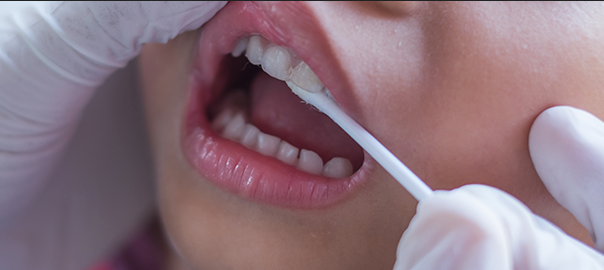Routine fluoride treatments assist children and teenagers up to the age of 16, but adults can benefit from that tiny additional fluoride protection as well, specifically if they have particular disorders that raise their risk of dental caries. Fluoride is a substance that can be found in various foods, water, kinds of toothpaste, and mouth rinses. Its main advantage is that it helps to keep our teeth’s enamel healthy, robust, and resilient to the acids produced by plaque and carbohydrates in our mouths.
Is there a need for more of it? Fluoride levels in our bodies fluctuate from day to day. Fluoride is gained naturally, but it is also lost when plaque bacteria in our gums destroy the enamel of our teeth. Dental decay and cavities arise when we inevitably lose more fluoride than we’re storing (taking in). Fluoride treatments can aid in this situation.
While fluoride treatments are most commonly associated with children, they can also help adults battle tooth decay.
How Adults Can Get Benefits From Fluoride Treatments?
- You Frequently Have a Dry Mouth: A dry mouth makes it more difficult for food pieces to be rinsed away and acids to be neutralized, increasing the risk of cavities. Mental anguish, some drugs, ageing, smoking, and certain health issues are all common reasons for dry mouth.
- Gum Disease and Gum Recession: These conditions can highlight more of your tooth and root surfaces to microorganisms, increasing the risk of dental caries.
- You Already Have Dental Work: Some dental procedures, such as crowns, implants, and even braces, might raise your chances of tooth decay, particularly where the crown joins the underlying tooth enamel or braces clips meet.
- You’ve Had a lot of Cavities in the Past: You might benefit from more fluoride treatments if you get one cavity each year or every alternate year.
- You Nibble a Lot: The more times you eat during the day, the more likely you are to develop dental rot. Most snacks are high in carbohydrates and sugars, the primary fuels for plaque formation.
- Your Teeth Have Significant Pits and Grooves in Them: Even if you floss and wash your teeth regularly, it’s not always easy to get rid of all of the excess food particles that might accumulate in these places. Your teeth are subjected to a plaque for extended periods when these fragments are stuck, boosting your risk of tooth decay.
In-office Procedure of Fluoride Treatments
Fluoride treatments are suggested in the dentist’s office because it strengthens teeth by interacting with inherent tooth minerals. Dental Caries is a condition of the tooth structure, as we all know (enamel, dentin, and cementum). A calcification lesion or “cavity” is caused by the skeletal fluorosis of these components caused by dental biofilm (plaque) and acid production (daily foods and drinks). Fluoride binds with natural teeth, making them highly resistant to decaying both systematically (for developing teeth) and externally.
Suggestions for fluoride treatments in the office are most successful when the patient knows the benefits. Enabling your patient to make choices rather than simply informing them can help you solve any communication barriers and improve patient results.
As our population ages, so does their risk of developing dental caries. Personalized screenings and discussions about our adult patients’ current health conditions or habits will help them become more involved in their oral health choices. When your adult patients realize why fluoride treatments are indicated and the benefits connected with the care, they are more likely to agree with the treatment schedule.
Fluoride treatments can benefit people of all ages, not just children. In fact, fluoride is an important mineral that can help prevent tooth decay and strengthen tooth enamel in people of all ages.
Fluoride treatments are typically applied by a dentist or dental hygienist during a routine dental visit. The treatment involves applying a highly concentrated fluoride gel, foam, or varnish to the teeth for a few minutes. The fluoride is then rinsed off, and patients are instructed not to eat or drink for at least 30 minutes afterward.
While fluoride is naturally present in many water sources and some foods, getting a fluoride treatment can provide an extra boost of protection against tooth decay. In addition to fluoride treatments, using fluoride toothpaste and drinking fluoridated water can also help promote good oral health.
It’s important to note that while fluoride treatments can be beneficial, they should only be administered by a trained dental professional. Additionally, some individuals may have medical conditions that make them more susceptible to the negative effects of fluoride, so it’s important to talk to your dentist or healthcare provider about whether fluoride treatments are right for you.

